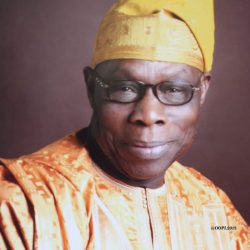Olusegun Obasanjo has been described as one of the greatest figures of the second generation of post-colonial African leaders. He received praise both for overseeing Nigeria’s transition to representative democracy in the 1970s and for his Pan-African efforts to encourage cooperation across the continent. He was President of Nigeria from 1999 to 2007, during which time he played an instrumental role in bringing democracy back to the country and was Chairperson of the African Union (AU) from July 2004 to January 2006. He served as Nigeria’s military ruler from 1976 to 1979 and was Africa’s first military head of state to hand over power to a civilian government. The UN inducted him as special envoy of Africa in 2008. Since then, he has been overseeing or consulted on the democratic elections of countries across the African continent especially on behalf of the African Union and Economic Community of West African States (ECOWAS).
He has at different times served as Chairman of the Group of 77, Chairman of the Commonwealth Heads of Government Meeting, Chairman of the African Heads of State and Government Implementation Committee on The New Partnership for Africa’s Development (NEPAD), and served on the African Progress Panel to monitor and promote Africa’s development. He was also involved in international mediation efforts in Namibia, Angola, South Africa, Mozambique and Burundi. In 2008, United Nations Secretary-General Ban Ki-moon appointed President Obasanjo as his Special Envoy on the Great Lakes. He is also co-chair of InterAction Council.
Olusegun Obasanjo is the chief promoter of the Olusegun Obasanjo Presidential Library (OOPL), a massive project located in General Obasanjo’s hometown of Abeokuta, Southwest Nigeria. The OOPL remains the first of its kind in Nigeria and the first of such presidential libraries in the whole of the African continent. It houses the Secretariat of the Africa Progress Group (APG).

